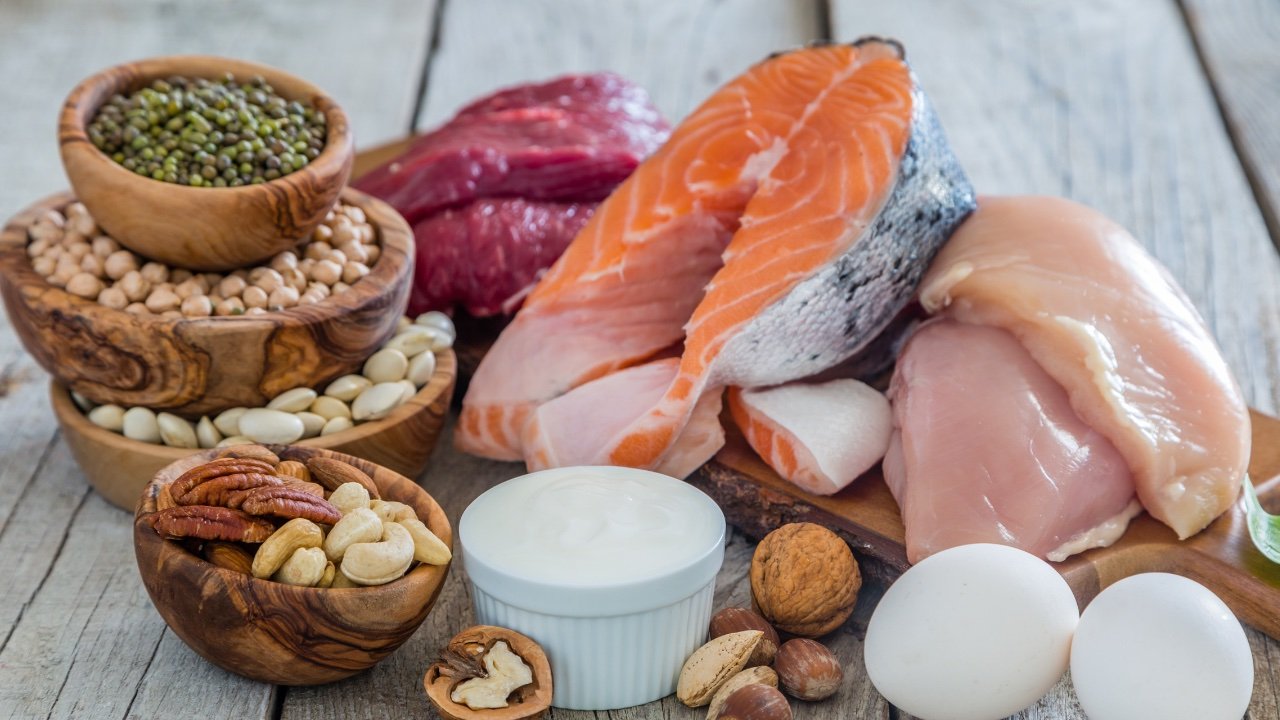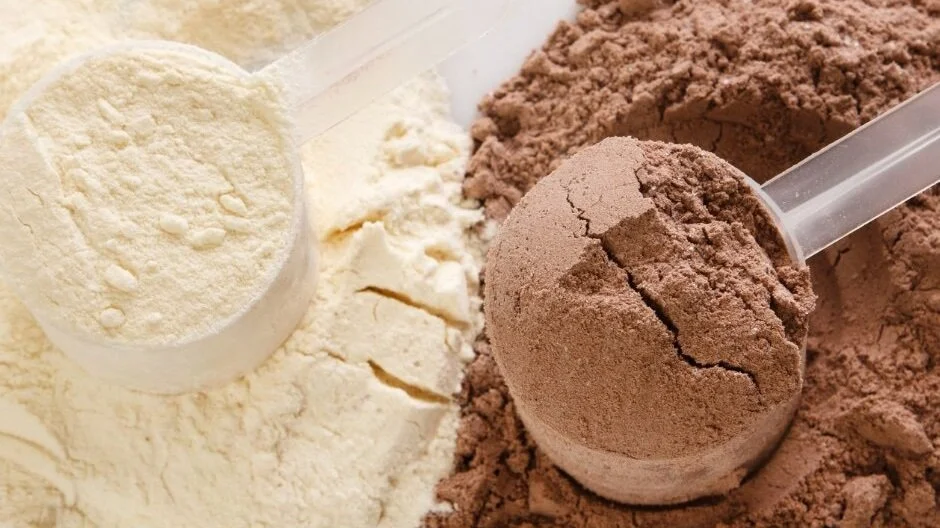Can You Eat Chicken Salad While Pregnant? Here’s What You Need To Know!
There’s a lot of confusion about what is and isn’t safe to eat during pregnancy, but one question I hear a lot from mums-to-be is ‘Can I eat chicken salad while pregnant?’.
And it’s no wonder given it’s such a staple lunch for many of us (and also a great nutrient-rich option for pregnancy!).
The good news is that chicken salad can absolutely be safe to eat during pregnancy if prepared and stored in the right way.
Here’s what you need to know.
Firstly, a little pregnancy food safety 101
One of the main concerns when it comes to food safety during pregnancy is the risk of foodborne illnesses caused by bacteria and viruses.
During pregnancy, the immune system is naturally suppressed to accommodate the growing baby, which makes pregnant women more susceptible to infections.
Some pathogens can cross the placenta and infect the developing baby, and in extreme cases can have very serious consequences, although this is very rare.
Below are the main pathogens of concern during pregnancy.
Listeria
Listeria is a type of bacteria that can be present in certain foods and causes the infection listeriosis.
Symptoms of listeriosis in pregnant women can vary from mild flu-like symptoms to more severe cases, making it challenging to diagnose.
Unfortunately, even when symptoms in the pregnant woman are mild, listeriosis can have very serious consequences for the developing baby.
The foods most commonly associated with listeria bacteria are:
Soft and semi-soft cheeses such as brie, camembert, ricotta, blue-vein and feta
Raw fruit and vegetables that haven’t been washed adequately and unpasteurised juices
Processed fruit and vegetables such as pre-prepared and pre-cut fruits and vegetables from supermarkets, buffets and salad and sandwich bars
Raw or undercooked poultry, sausages and hot dogs
Deli meat such as ham, salami and pre-cooked chicken
Raw or smoked fish and seafood and ready-to-eat chilled seafood that will not be further cooked (e.g cooked prawns)
Refrigerated, ready-to-eat dips such as hummus, pesto and guacamole
Raw or lightly cooked sprouts including alfalfa and bean sprouts and any other type of seed sprout
Ready-to-eat foods including leftover meats which have been refrigerated for more than one day and will not be further reheated or cooked
Soft serve ice cream
Salmonella
Salmonella is another type of bacteria associated with foodborne illness (aka food poisoning), typically causing diarrhoea, vomiting and fever which can be more severe in pregnant women.
There is a risk of the infection spreading into the bloodstream which can increase the risk of complications.
Salmonella infection can also increase the risk of premature birth and low birth weight if it affects the unborn baby.
Salmonella bacteria can be present in:
Raw meat and undercooked meat
Raw eggs and undercooked egg
Unpasteurised dairy products such as unpasteurised milk and soft cheeses
Raw fruits and vegetables that haven’t been thoroughly washed
Raw or lightly cooked sprouts such as alfalfa, bean sprouts and mung beans
Toxoplasmosis
Toxoplasmosis is an infection caused by a parasite known as Toxoplasma gondii.
Humans are most commonly infected via contaminated cat litter (as cats are a common host), but can also be found in raw and undercooked meat.
Most healthy people have only mild symptoms as a result of toxoplasmosis, however, like listeria, toxoplasmosis can have very serious consequences for a developing baby.
So how does all this apply to chicken salad?
That entirely depends on what’s in your chicken salad and how it’s been prepared and stored.
Some ingredients that may be in a chicken salad and are unsafe during pregnancy are:
Raw chicken and undercooked chicken
Unwashed produce
Undercooked egg
Unpasteurised dairy products such as blue cheese or brie
Deli meats
Mayonnaise made with raw egg
Raw sprouts
Then there’s also the preparation and storage considerations.
So, how can you safely eat chicken salad during pregnancy?
Whether it's homemade chicken salad or store-bought, there's no need to avoid this very healthy option during pregnancy.
Just make sure you follow the tips bellow to ensure your salad is safe.
Make sure the chicken is well cooked
The main concern with chicken salad is the chicken itself.
Make sure the chicken is cooked thoroughly. If you're cooking at home, this means it reaches an internal temperature of at least 74°C or 165°F during cooking to kill off bacteria. Same goes for any other type of meat.
If eggs are involved, make sure they're well-cooked too
Eggs are often included in salads such as chicken caesar salad.
Eggs are a great food to include in your pregnancy diet as they're rich in protein, iron and choline, an important nutrient for your baby's brain development.
Just make sure they're cooked through with no runny parts to minimise the risk of salmonella.
Avoid deli meats
Make sure your chicken salad is made with fresh chicken and avoid any added deli meat or lunch meat, unless they’re cooked.
Give soft cheeses a miss
If you want to add cheese to your salad, go for a hard cheese such as cheddar or parmesan.
Choose safe dressings
Mayonnaise is typically made with raw egg, however, commercial mayonnaises and salad dressings are generally safe during pregnancy as they’re made with pasteurised egg.
If you’re making salad at home, check the ingredients list to see what's in your dressing.
If you’re buying your chicken salad, unless you can find out what sort of mayonnaise they’re using, an alternative dressing such as vinaigrette may be a safer choice.
Make sure ingredients are fresh and well-washed
If it's a store-bought chicken salad, make sure your salad is made with fresh salad greens and vegetables that have been thoroughly washed.
Pre-made chicken salad, like the type you might find in grocery stores, is best avoided as you generally can't tell when they were made.
Pass on uncooked sprouts
Salads occasionally contain fresh sprouts such as alfalfa or mung beans which aren’t safe during pregnancy.
Practice good kitchen hygiene
If you’re making your own chicken salad at home (or someone is making it for you), make sure hands are washed thoroughly, separate cutting boards are used for any raw meat and hands are washed again after handling raw meat.
If you’re buying your salad ready-made, make sure it’s been made fresh and buy it from somewhere with good food safety practices.
Store and serve safely
Finally, place any leftovers in a sealed container in the fridge straight away and eat within 24 hours.
What to include in your chicken salad during pregnancy
Nutrient requirements increase during pregnancy to support the growth and development of your baby.
Salads are a fantastic way to help you meet these increased requirements as they’re packed full of a range of different nutrients.
As a prenatal dietitian, here’s what I recommend including in your chicken salad during pregnancy:
Baby spinach or other green leafy vegetables
Any green leafy vegetable such as baby spinach, romaine, mixed leaves or kale makes a fantastic base for a salad.
They provide antioxidants, choline, calcium and folate (folic acid).
Healthy fats
Healthy fats such as avocado, roasted nuts and seeds provide healthy monounsaturated fats, fibre and antioxidants.
Walnuts are a good source of omega-3 fats which are important for brain and eye development in babies.
Protein
Chicken usually provides plenty of protein, but you can also add other protein sources such as (well-cooked) eggs, legumes such as chickpeas, lentils or beans, nuts and seeds.
Wholegrains
Sometimes a salad can leave you not-quite-satisfied. If this is the case or you want something a little more filling, try adding some wholegrains to your salad.
Quinoa, brown rice, or wholemeal pasta are all great options.
Alternatively, serve your salad in a wholegrain wrap or as a chicken salad sandwich on wholemeal bread.
An olive oil-based dressing
Extra virgin olive oil is an excellent source of healthy monounsaturated fats and antioxidants, and also helps to increase the absorption of certain vitamins.
Some of my personal favourite additions
Roasted nuts and seeds - these provide fibre, choline, iron and omega-3 fatty acids - and and a delicious crunch to your salad
Hard-boiled eggs - extra protein, iron, B12 and choline
Avocado - provide plenty of healthy fats and just all round deliciousness
Legumes - you really can’t beat legumes for a nutrition boost. My favourites to add to salads are chickpeas (roasted if you have them!) and black lentils, but any pulses are great. Legumes are full of protein and fibre, and also provide iron and choline, both important nutrients during pregnancy.
I hope this information helps you confidently and safely enjoy chicken salad during your pregnancy and maintain a balanced diet.
Remember that every pregnancy is unique and your own individual needs may be different to those of another mum-to-be.
A prenatal dietitian can give you personalised guidance on your pregnancy diet to ensure that you and your baby get the best possible nutrition during this very important time.








